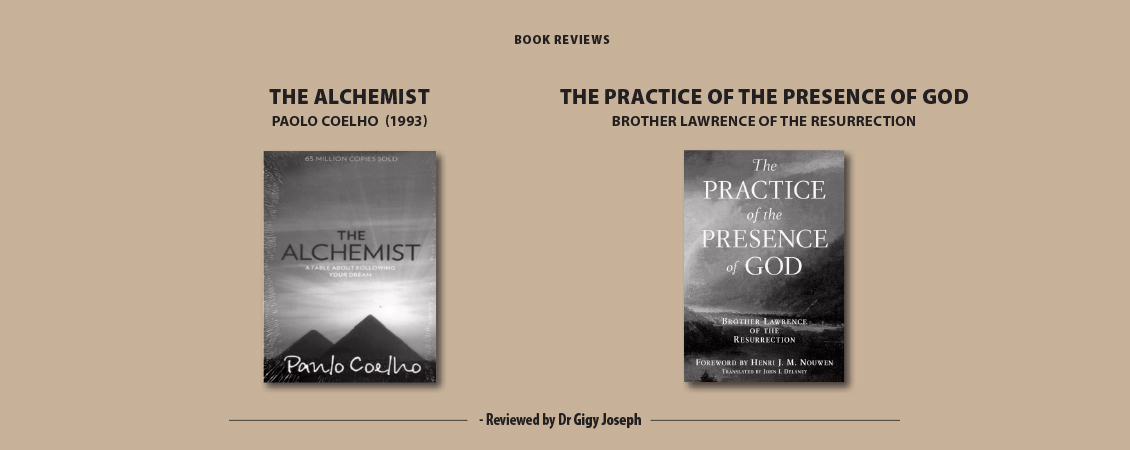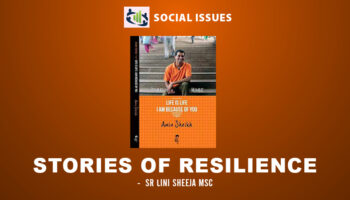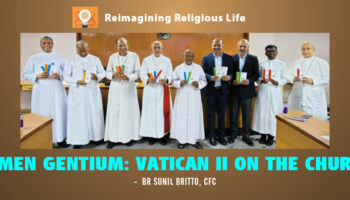The Alchemist
by Paolo Coelho. (1993)
One of the most popular novels of recent times, The Alchemist tells the story of Santiago, a young shepherd from Andalucia in Southern Spain, who goes on a quest for a treasure in the Egyptian desert. He has a recurrent dream that unsettles him about a treasure hidden near the pyramids of Egypt. A gypsy fortune teller interprets it for him and prompts him to go to Egypt. He meets a learned English man who is searching for the secret of alchemy that can turn lead into gold and also about elixir that can cure all diseases. Santiago also falls in love with a chaste Arab girl Fathima. He grows in his understanding of the mysterious power of nature and the “soul of the World” is revealed to him. The key moment of his journey is when he meets a two hundred years old alchemist who is a magician. The old man teaches himself understanding . He gains the power to communicate with the forces of nature and with the “Hand That Wrote All.” An old woman whom he meets tells him that God speaks through dreams “… dreams are the language of God. When he speaks in our language, I can interpret what he has said. But if he speaks in the language of the soul, it is only you who can understand.” The Alchemist accompanies him through Arab lands to a Coptic monastery where he demonstrates how to turn lead into gold and shares some of the gold with Santiago. He soon reaches the pyramids and digs in the designated place for treasure. Here desert bandits rob him of his gold and force him to dig for more. Nothing is found and Santiago is beaten almost to death. When he tells them that he had dreamed of the treasure, they mock him. One of them tells him that he had a dream of treasure buried in Santiago’s village church near the sycamore tree. This is where his dream first occurred to him. He returns home to find it and longs to share it with his helpers on the way, including Fathima, his sweetheart.
The constant theme in The Alchemist is to pursue your dreams by following your heart’s desires, overcome fear and face the ups and downs of life as they come. Life is a journey and we must stay focused on it. Besides, the things that we seek in order to enrich our lives are not things that are far away, but can be right under our feet.
The Practice of the Presence of God (1693)
By Brother Lawrence of the Resurrection
The book is the posthumous compilation of the letters and conversations of the man whose real name was Nicholas Herman (1605–91). Herman started his career as a soldier. A battle wound left him lame for life and badly damaged his soul. Back from the war, he took up work as a cook for a lord. He had experienced a spiritual conversion at eighteen years, but had chosen to ignore it. Nicholas observed a leafless tree one winter. He envisioned that it would soon put on leaves, blossom and bear fruit in time. He was able to read this as a sign of God’s providence and power. It made a deep impression on his soul. Nicholas joined the Order of Discalced Carmelites in Paris at twenty-four with the religious name “Lawrence of the Resurrection.” He spent the rest of his life there doing humble jobs, like cooking and cleaning. His spiritual wisdom became famous and many troubled souls including brother monks and lay people sought his counsel. He devoted his life to the cultivation of a keen sensitivity to the presence of God in everyday life. This is the running theme of this book.
Love of God became the end of all his actions and aspirations; even flipping an omelet in the pan or picking up a straw from the ground became an act of love. His life was devoted to “seeking Him only and nothing else, not even gifts.” He writes: “That in order to form a habit of conversing with God continually, and referring all we do to Him; we must at first apply to Him with some diligence: but that after a little care we should find His love inwardly, excite us to it without any difficulty.” His vision is at once charmingly simple and profound. Henri Nouwen comments that it “is not just a nice idea for a seventeenth-century monk but a most important challenge to our present-day life situation.” Brother Lawrence does not ignore the struggles and sufferings that one has to undertake in the process of seeking God’s company. One thing that he shares with his readers is this insight: “We ought not to be weary of doing little things for the love of God, who regards not the greatness of the work, but the love with which it is performed.” “He does not ask much of us, merely a thought of Him from time to time.” The book tells us that sanctity is not a remote and difficult thing for ordinary people living in ordinary circumstances; spiritual depth can be sought in the ordinary, everyday life.
Dr Gigy Joseph
To subscribe to the magazine, click Subscribe





